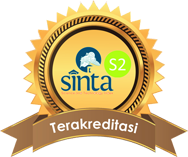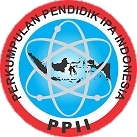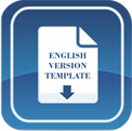Enhancing 21st Century Skills in Students with Special Needs Through STEM Learning
DOI:
https://doi.org/10.15575/jtk.v9i2.38883Keywords:
inclusive education, STEM learning, student with special needsAbstract
STEM learning has been recognized for its potential to improve critical, creative, collaborative, and communicative skills—key components of 21st-century competencies. For students with special needs, STEM-based approaches can offer tailored opportunities to develop these skills through active and interactive learning methods. This study aims to identify patterns of STEM learning implementation that contribute to the development of 21st-century skills in students with special needs. A descriptive qualitative approach was employed, involving data collection from Giwangan State Elementary School in Yogyakarta. Respondents included a teacher and a special assistant teacher for the 4th grade. Data collection techniques consisted of field observations, semi-structured interviews with 18-27 questions, and document analysis. The data were analyzed using qualitative content analysis, including reduction, presentation, and conclusion drawing, while validity was ensured through source triangulation. The findings reveal that STEM learning is conducted in three stages: introductory, main, and closing phases. This method engages students with special needs in problem-solving and group projects integrating science, technology, engineering, and mathematics. The observed activities enhanced students' motivation, interest in learning, and the development of critical thinking, collaboration, and communication skills. The study highlights the effectiveness of STEM learning in fostering 21st-century skills among students with special needs, offering an inclusive and interactive framework for educators to implement in similar contexts.References
Adhelacahya, K., Said, A. A. N., & Habsari, R. A. (2020). Inovasi Pembelajaran Berbasis Science, Technology, Engineering and Mathematics (STEM) pada Anak Berkebutuhan Khusus di Era Revolusi Industri 4.0. Jurnal Ilmiah Penalaran dan Penelitian Mahasiswa, 4(1), 147-164. Retrieved from https://jurnal.ukmpenelitianuny.id/index.php/jippm/article/view/182
Ainscow, M., Booth, T., & Dyson, A. (2006). Improving Schools, Developing Inclusion (1st Edition). Routledge. https://doi.org/10.4324/9780203967157
Allutfia, F. T., & Setyaningsih, M. (2023). Analisis Kesiapan Guru dalam Menghadapi Kurikulum Merdeka Mata Pelajaran IPAS Kelas IV. Academy of Education Journal, 14(2), 326–338. https://doi.org/10.47200/aoej.v14i2.1656
Andrean, H., Pradipta, R. F., & Purnamawati, F. (2021). The Importance of Technology Education for Children with Special Needs in Inclusive Schools. Proceedings of the 7th Internasional Conference on Education and Technology (ICET 2021), 81–84. Retrieved from https://www.atlantis-press.com/proceedings/icet-21/125964548
Arianti, R., Sowiyah, S., Handoko, H., & Rini, R. (2022). Learning of Children with Special Needs in Inclusive Schools. Journal of Social Research, 2(1), 142–147. https://doi.org/10.55324/josr.v2i1.474
Arsy, I., & Syamsulrizal, S. (2021). Pengaruh Pembelajaran STEAM (Science, Technology, Engineering, Arts, And Mathematics) terhadap Kreativitas Peserta Didik. Biolearning Journal, 8(1), 24–26. https://doi.org/10.36232/jurnalbiolearning.v8i1.1019
Astutik, I. S. (2020). Pengembangan Media Pembelajaran Kincir Angin Berbasis STEM untuk Meningkatkan Keterampilan Mengomunikasikan Siswa Inklusi Kelas 4 Sekolah Dasar. Jurnal Didaktika Pendidikan Dasar, 4(3), 723-740. https://doi.org/10.26811/didaktika.v4i3.132
Azzahra, I., Aan Nurhasanah, & Eli Hermawati. (2023). Implementasi Kurikulum Merdeka pada Pembelajaran IPAS di SDN 4 Purwawinangun. Didaktik : Jurnal Ilmiah PGSD STKIP Subang, 9(2), 6230–6238. https://doi.org/10.36989/didaktik.v9i2.1270
Battelle for Kids. (2019). Framework for 21st Century Learning Definitions. Retrieved from https://www.battelleforkids.org/insights/p21-resources/
Cresswell, J. W. (2017). Research Design: Qualitative, Quantitative and Mixed Method Approaches. California: Sage Publication, Inc.
Dell’Anna, S., Pellegrini, M., Ianes, D., & Vivanet, G. (2022). Learning, Social, and Psychological Outcomes of Students with Moderate, Severe, and Complex Disabilities in Inclusive Education: A Systematic Review. International Journal of Disability, Development and Education, 69(6), 2025–2041. https://doi.org/10.1080/1034912X.2020.1843143
Göransson, K., & Nilholm, C. (2014). Conceptual Diversities and Empirical Shortcomings- A Critical Analysis of Reasearch on Inclusive Education. European Journal od Special Needs Education, 29(3), 265-280. https://doi.org/10.1080/08856257.2014.933545
Hamidaturrohmah, Muhaimin, M., Sholikhah, A., & Nailufar, D. A. (2023). Pengembangan Buku Suplemen Intervensi Life Skill Berbasis STEAM bagi Anak Berkebutuhan Khusus di Sekolah Dasar Inklusi. Indonesian Journal of Humanities and Social Sciences, 4(3), 609-622. Retrieved from https://ejournal.uit-lirboyo.ac.id/index.php/IJHSS/article/view/4338
Huang, L., & Pei, X. (2024). Exploring the Impact of Web-based Inquiry on Elementary School Students’ Science Identity Development in a STEM Learning Unit. Humanities and Social Sciences Communications, 11(1), 885. https://doi.org/10.1057/s41599-024-03299-5
Isa, S. S. P. M. (2024). The Project-Based Learning (STEM Model) in Fundamental Physics Learning. International Journal of Modern Education (IJMOE), 6(21), Article 21. https://gaexcellence.com/index.php/ijmoe/article/view/621
Iskandar, S., Rosmana, P. S., Farhatunnisa, G.m Mayanti, I., Apriliya, M., Gustavisiana, T. S. (2023). Implementasi Kurikulum Merdeka di Sekolah Dasar. Innovative: Journal of Social Science Research, 3(2), 2322-2336. Retrieved from https://j-innovative.org/index.php/Innovative/article/view/572
Jatmika, S., Lestari, S., Rahmatullah, R., Pujianto, P., & Dwandaru, W. S. B. (2020). Integrasi Project Based Learning dalam Science Technology Engineering and Mathematics untuk Meningkatkan Keterampilan Proses Sains dalam Pembelajaran Fisika. Jurnal Pendidikan Fisika dan Keilmuan (JPFK), 6(2), Article 2. https://doi.org/10.25273/jpfk.v6i2.8688
Khoiri, A. (2019). Meta Analysis Study: Effect of STEM (Science Technology Engineering and Mathematic) towards Achievement. Formatif: Jurnal Ilmiah Pendidikan MIPA, 9(1), 71–82. https://doi.org/10.30998/formatif.v9i1.2937
Lutfiyah, L., Murtinasari, F., & Sulisawati, D. N. (2023). The Level of Dyscalculia in Children with Special Needs in Understanding Mathematical Concepts: Learning Difficulties Experienced. Jurnal Kependidikan: Jurnal Hasil Penelitian dan Kajian Kepustakaan di Bidang Pendidikan, Pengajaran dan Pembelajaran, 9(2), 696–705. https://doi.org/10.33394/jk.v9i2.7848
Mawaddah, R., Triwoelandari, R., Irfani, F., Ibn, U., & Bogor, K. (2022). Kelayakan LKS Pembelajaran IPA Berbasis STEM untuk Meningkatkan Keterampilan Kolaborasi Siswa SD/MI. Cakrawala Pendas, 8(1), 1–14. Retrieved from https://ejournal.unma.ac.id/index.php/cp/article/view/1911
Mayerhofer, M., Lüftenegger, M., & Eichmair, M. (2024). The Development of Mathematics Expectancy-value Profiles during the Secondary–tertiary Transition into STEM Fields. International Journal of STEM Education, 11(1), 31. https://doi.org/10.1186/s40594-024-00491-6
Moeleong, L. J. (2015). Metodologi Penelitian Kualitatif. Bandung: PT Remaja Rosdakarya.
Ningrum, N. A. (2022). Strategi Pembelajaran pada Anak Berkebutuhan Khusus dalam Pendidikan Inklusi. Indonesian Journal of Humanities and Social Sciences, 3(2), Article 2. retrieved from https://ejournal.uit-lirboyo.ac.id/index.php/IJHSS/article/view/3099
Normasari, E., Fitrianawati, M., & Rofiah, N. H. (2021). Akseptabilitas Orang Tua terhadap Anak Berkebutuhan Khusus di Kota Yogyakarta (Studi Kasus pada Lembaga Federasi Komunikasi Keluarga Penyandang Disabilitas). Wasis : Jurnal Ilmiah Pendidikan, 2(2), 133–139. https://doi.org/10.24176/wasis.v2i2.6927
Nuraeni, F., Malagola, Y., Pratomo, S., & Putri, H. E. (2021). Trends of Science Technology Engineering Mathematics (STEM)-based Learning at Elementary School in Indonesia. Premiere Educandum : Jurnal Pendidikan Dasar Dan Pembelajaran, 11(1), 87. https://doi.org/10.25273/pe.v11i1.8805
Nurjanah, N. E. (2020). Pembelajaran STEM Berbasis Loose Parts Untuk Meningkatkan Kreativitas Anak Usia Dini. Jurnal Audi: Jurnal Ilmiah Kajian Ilmu Anak dan Media Informasi PAUD, V(1), 19–31. Retrieved from https://ejurnal.unisri.ac.id/index.php/jpaud/article/view/3672
Praptiningrum, N. (2010). Fenomena Penyelenggaraan Pendidikan Inklusif bagi Anak Berkebutuhan Khusus. JPK (Jurnal Pendidikan Khusus), 7(2), 32–39. retrieved from https://journal.uny.ac.id/index.php/jpk/article/view/774
Prastowo, A. (2020). Metode Penelitian Kualitatif dalam Perspektif Rancangan Penelitian. Yogyakarta: Ar-Ruzz Media.
Putri, C. D., Pursitasari, I. D., & Rubini, B. (2020). Problem Based Learning Terintegrasi STEM di Era Pandemi Covid-19 untuk Meningkatkan Keterampilan Berpikir Kritis Siswa. Jurnal IPA & Pembelajaran IPA, 4(2), 193–204. https://doi.org/10.24815/jipi.v4i2.17859
Rahmawati, I., & Basith, A. (2023). Life Skills Education Based on Local Excellence: Studi of State Special Schools Students in East Kalimantan. Qalamuna: Jurnal Pendidikan, Sosial, dan Agama, 15(2), 729–744. https://doi.org/10.37680/qalamuna.v15i2.2497
Ridha, M. R., Zuhdi, M., & Ayub, S. (2022). Pengembangan Perangkat Pembelajaran PjBL berbasis STEM dalam Meningkatkan Kreativitas Fisika Peserta Didik. Jurnal Ilmiah Profesi Pendidikan, 7(1), 223–228. https://doi.org/10.29303/jipp.v7i1.447
Schreier, M. (2012). Qualitative Content Analysis in Practice. London: SAGE Publication Ltd.
Sugiyono. (2016). Metode Penelitian Kuantitatif Kualitatif dan R&D. Bandung: Alfabeta.
Sugiyono. (2020). Metode Penelitian Kuantitatif, Kualitatif dan Kombinasi (Mixed Methods) (Cetakan ke-10). Bandung: Alfabeta.
Sukmana, R. W. (2018). Implementasi Pendekatan STEM (Science, Technology, Engineering and Mathematics) untuk Meningkatkan Keterampilan Berpikir Kritis Siswa di Sekolah Dasar. Primaria Educationem Journal (PEJ), 1(2), 113-119. Retrieved from http://journal.unla.ac.id/index.php/pej/article/view/1081
Sutiani, A., & Pasaribu, C. J. T. (2023). Fostering Scientific Literacy through Integrated STEM Teaching Materials on Basic Laws of Chemistry. Jurnal Tadris Kimiya, 8(1), 95–103. https://doi.org/10.15575/jtk.v8i1.25833
Sjöström, J., & Talanquer, V. (2014). Humanizing Chemistry Education: From Simple Contextualization to Multifaceted Problematization. Journal of Chemical Education, 91(8), 1125–1131. https://doi.org/10.1021/ed5000718
Stinken-Rösner, L., Rott, L., Hundertmark, S., Baumann, T., Menthe, J., Hoffmann, T., Nehring, A., & Abels, S. (2020). Thinking Inclusive Science Education from two Perspectives: Inclusive Pedagogy and Science Education. Research in Subject-matter Teaching and Learning, 3, 30-45. https://doi.org/10.23770/rt1831
Triana, D., Anggraito, Y. U., & Ridlo, S. (2020). Effectiveness of Environmental Change Learning Tools Based on STEM-PjBL Towards 4C Skills of Students. Journal of Innovative Science Education, 9(2), 181-187. Retrieved from https://journal.unnes.ac.id/sju/jise/article/view/34048
Ulva, M., & Amalia, R. (2020). Proses Pembelajaran Matematika pada Anak Berkebutuhan Khusus (Autisme) di Sekolah Inklusif. Journal on Teaching Education, 1(2), 9–19. https://doi.org/10.31004/jote.v1i2.512
Vai, A., & Lorenza, J. (2019). Implementasi Pembelajaran Penjas Adaptif pada Anak-Anak Kebutuhan Khusus di Sekolah Dasar Inklusif. Altius: Jurnal Ilmu Olahraga dan Kesehatan, 8(1), 9–14. https://doi.org/10.36706/altius.v8i1.8243
Wahyuni, N. P. (2021). Penerapan Pembelajaran Berbasis STEM untuk Meningkatkan Hasil Belajar IPA. Journal of Education Action Research, 5(1), 109-117. https://doi.org/10.23887/jear.v5i1.31554
Downloads
Published
Issue
Section
License
Authors who publish with this journal agree to the following terms:
- Authors retain copyright and grant the journal right of first publication with the work simultaneously licensed under a  Creative Commons Attribution-ShareAlike that allows others to share the work with an acknowledgement of the work's authorship and initial publication in this journal.
- Authors are able to enter into separate, additional contractual arrangements for the non-exclusive distribution of the journal's published version of the work (e.g., post it to an institutional repository or publish it in a book), with an acknowledgement of its initial publication in this journal.
- Authors are permitted and encouraged to post their work online (e.g., in institutional repositories or on their website) prior to and during the submission process, as it can lead to productive exchanges, as well as earlier and greater citation of published work (See The Effect of Open Access).








